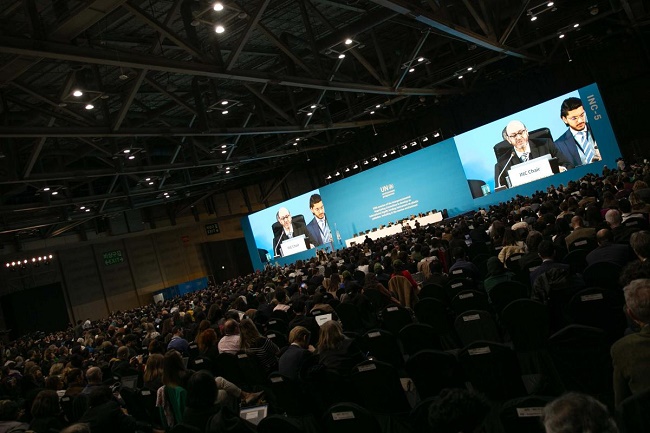The latest round of negotiations for a Global Plastics Treaty (INC5) in Busan, South Korea, intended to mark the culmination of two years of deliberations, ended with critical issues still unresolved in the final hours, with countries now having to return to the negotiating table in 2025.

The talks stalled as fossil fuel-producing nations tried to weaken the treaty, pushing for a focus on waste management and circular economy while avoiding binding measures on plastic production. However, hope remains as the majority of countries united around a bold vision for a treaty tackling plastic pollution at its root – limiting production, supply, and hazardous chemicals. Momentum is growing for real solutions.
99% of plastics are made from chemicals derived from fossil fuels. As pressure increases on the fossil fuel industry to phase out production of coal, oil and gas in response to the global climate crisis, some countries are looking to the plastics industry as an economic outlet for the fossil fuels they produce.
Yet, continued plastic production will not only accelerate biodiversity loss and ecosystem destruction but also jeopardise food and water safety while posing significant risks to human health. Without binding agreements to reduce the supply of the fossil fueled-building blocks of plastics – known as primary plastic polymers or PPPs – any treaty will fall short of creating the systemic change needed to protect communities, biodiversity, and the planet.
Rebecca Byrnes, Legal Director for the Fossil Fuel Treaty Initiative, said: “The plastics crisis is inseparable from the fossil fuel crisis, and half-measures are not acceptable. Bold, systemic action is needed to prevent the fossil fuel industry from derailing global efforts to protect people and the planet. It’s critical that countries agree to reduce the supply of the primary building blocks of plastics.
“The Plastics Treaty must not be limited only to mopping up the mess of the plastics industry but must tackle the problem at its source. It can be complemented by a comprehensive Fossil Fuel Treaty that would hold nations accountable for their shared responsibility to protect vulnerable communities disproportionately impacted by both the plastics and climate crises – two sides of the same fossil fuel coin.
“The reluctance of some fossil fuel and plastics-producing countries to curb plastics production mirrors their obstruction in climate talks, underscoring the urgent need for a new binding framework that tackles the root cause of these twin crises. A Fossil Fuel Non-Proliferation Treaty could complement the Plastics Treaty and the UNFCCC by providing an overarching framework for the phase out of all fossil fuels.
“It would also help countries whose economies are dependent on fossil fuels to find alternative development pathways so that they are able to prosper without relying on the fossil fuel industry or its interconnected industries – plastics and petrochemicals. Such a Treaty could help break the deadlock in future negotiations under the Plastics Treaty and UNFCCC by setting a legal norm focused on the equitable phase out and just transition from fossil fuels and allow countries to negotiate without being encumbered by a dependence on fossil fuels in other fora.”
